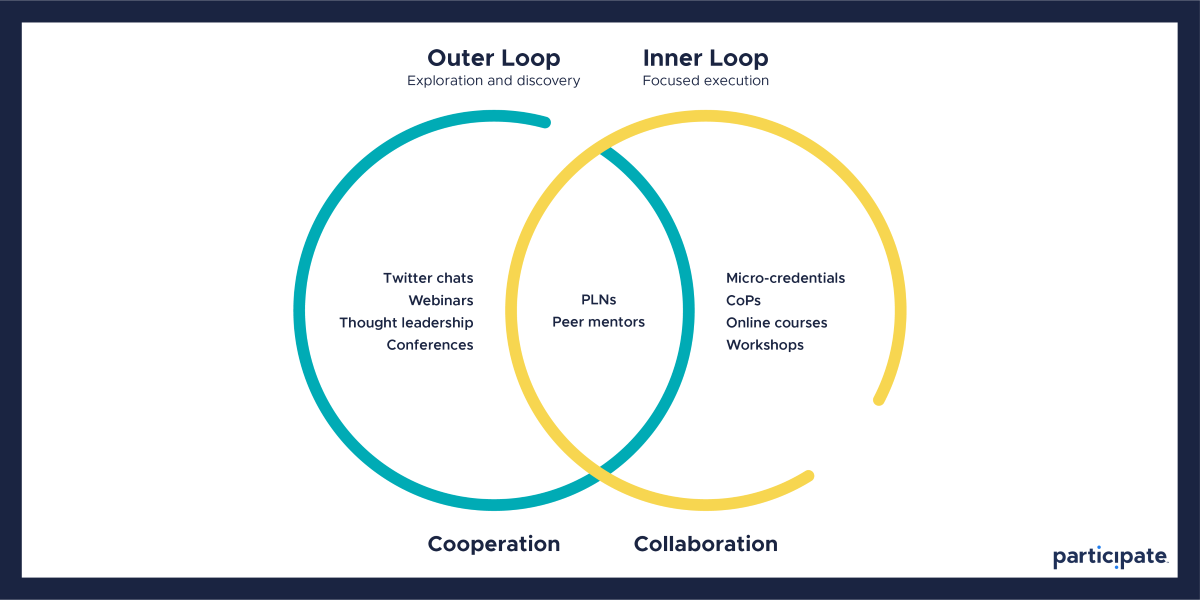Five Questions PLCs Should Ask To Promote Equity
When students are disengaged from learning content and activities or within play-time, they run the risk of being isolated, not reaching their full potential and engaging in negative behavior within the classroom. There are also many students who struggle with learning concepts and applying learning strategies to engage whether they might have an intellectual/learning disability or not. Professional Learning Communities (PLCs) can foster effective engagement within students, motivating and inspiring them and driving successful outcomes.
The culture of the school and district in which PTLC is being implemented
To put equity at the forefront of goals to facilitate effective engagement with learning activities, content and with interpersonal relationships with others, Fisher, Frey and Almarode (2019) developed a set of five questions for PLCs to ask; these include ‘Where are we going?, Where are we now?, How do we move learning forward? What did we learn today? [and] Who benefited and who did not benefit?’ (Fisher, Frey and Almarode, 2019, np.).
These questions are important for PLCs to deliver facilitation of instructional methods that teaching staff can harness to improve instruction, drive positive impact upon students’ learning achievements and to potentially bridge the gap in opportunities for students and those who are on the margins or at risk. Student marginalization is common within school settings whether it be due to a teacher’s cognitive abilities of their students or their thoughts of capacity for interactions that foster strong, healthy relationships.
What Do These Questions Mean?
Outer loop, Transition, and Inner Loop by Educationdrive
‘Where are we going?’ is an important question related to goals; as Fisher, Frey and Almarode (2019) note, this question may seem distant from the topic of equity and yet it is pertinent. Striking a balance between fostering learning and development aligned with student capabilities and ensuring that students are equipped and ready to progress into the following year of school is crucial. Targeting learning activities towards expectations that are below the grade standard does not equip students with readiness to progress and therefore PLCs can facilitate conversations that produce outcomes where learning concepts are more aligned with grade-level expectations.
Impact for adult learners- Educationdrive
‘Where are we now?’ is an interesting question as it can lead educators to discover the inequitable opportunities offered to students throughout their learning and so with PLCs, the aim is to identify the gaps and establish effective strategies for bridging them so that all students are offered opportunities to reach their full potential. The question of ‘how do we move learning forward?’ relates to the ineffectiveness of some teaching approaches; instructional methodologies are important to encompass all students and be aware of different learning styles such as VARK – Visual, Aural, Reading, Kinesthetic – preferences. Implementing conducive learning strategies, skills and tactics is important to support diversity.
Teachers need to embrace all student learning capabilities and direct questions to all students to foster learning. This might seem like common questions but do all educators actually ask themselves what their students learned and what indeed they themselves learned? PLC discussions can help teachers identify what they learned from instruction within lessons as well as being learner-centered and understanding the students’ grasp of the concepts.
Finally, ‘who benefited and who did not benefit?’ is a strong question related to the element of understanding the students’ capabilities and the drive of equitable learning opportunities. It is highly-common for educators to be focused on the students who are achieving well and this produces a sense of accomplishment yet what about the students struggling with concepts? Who did not benefit out of the lesson? Once teachers overcome the barriers of students who are challenged by unfamiliar concepts; they too can gain new knowledge and focus on student progress while adapting to their varying needs.
Source:
Fisher, D., Frey, N. & Almarode, J. (2019). ‘5 questions PLCs should ask to promote equity’. The Learning Professional: The Learning Forward Journal. Vol. 40. No. 5. Learning Forward.
https://learningforward.org/journal/resilient-leadership/5-questions-plcs-should-ask-to-promote-equity/?fbclid=IwAR3ndlLCUBWyHODNT_RSvrkOUVA3o-GFFSDeLLOoT8qvwRwFf9HL36ba4gk. Accessed 05/02/2020.
http://www.sedl.org/txcc/resources/working_systemically/ptlc-intro.pdf
https://www.educationdive.com/spons/a-shift-in-the-professional-learning-cycle/559055/



